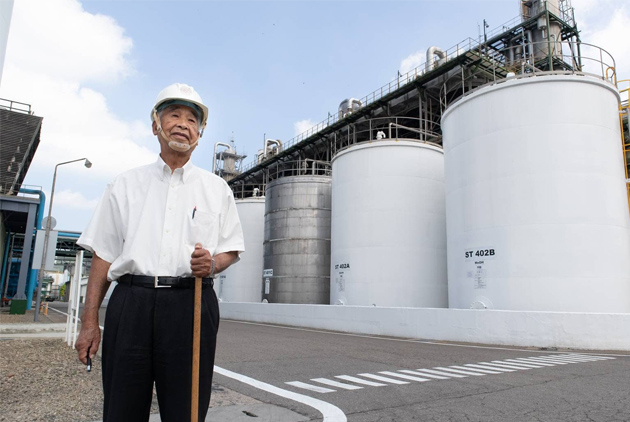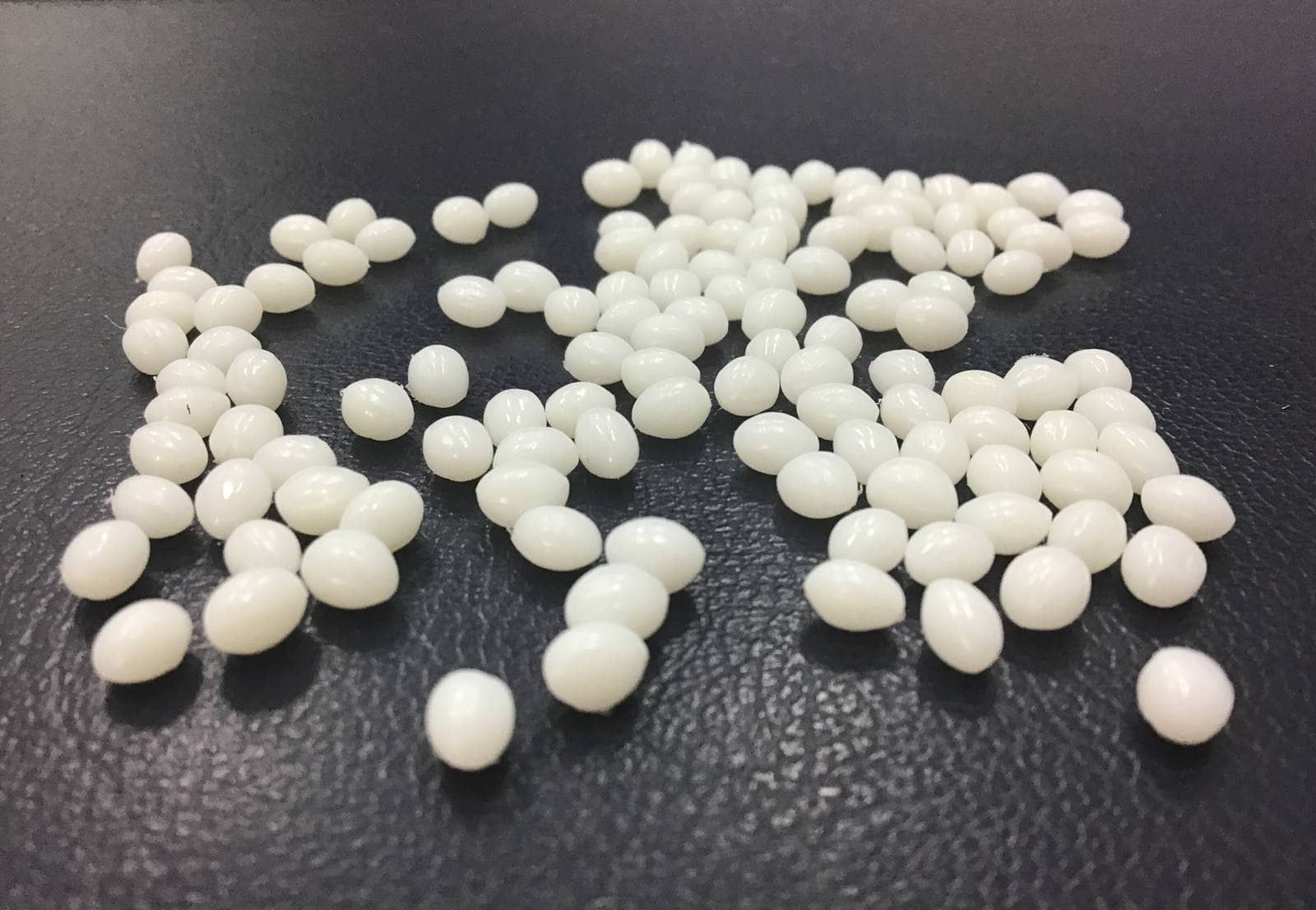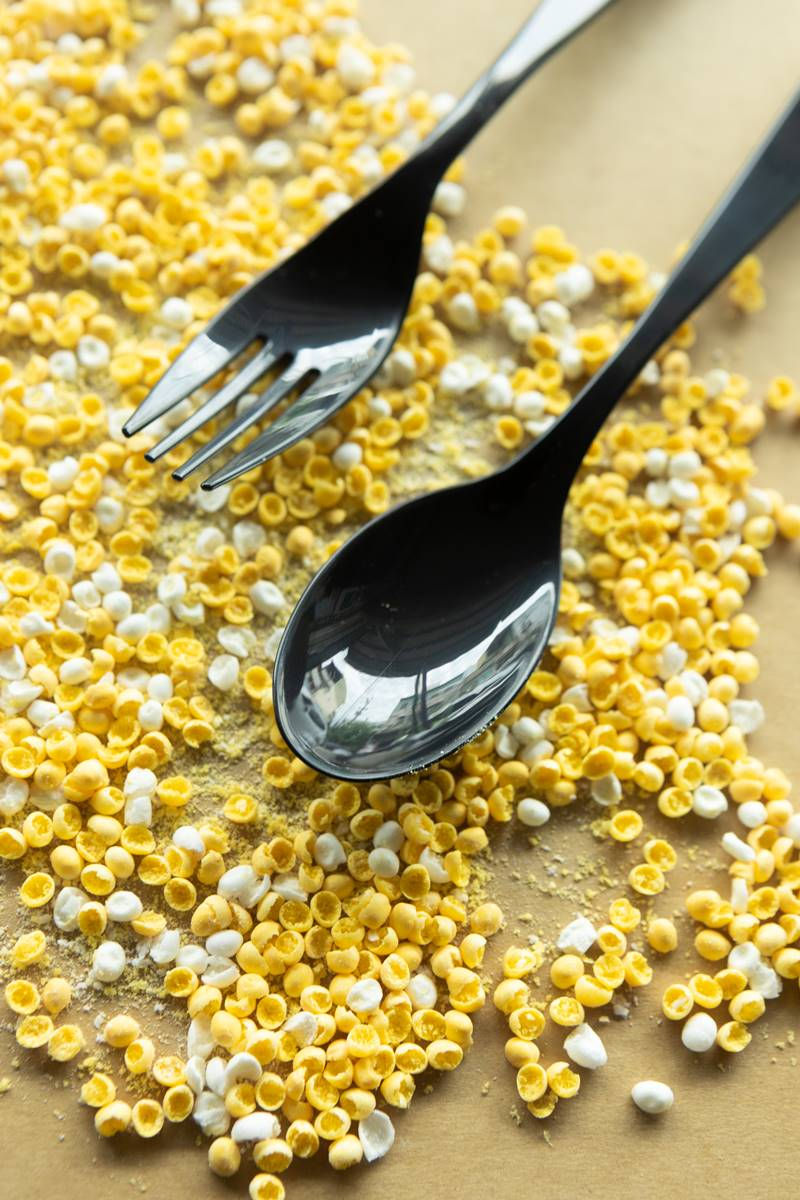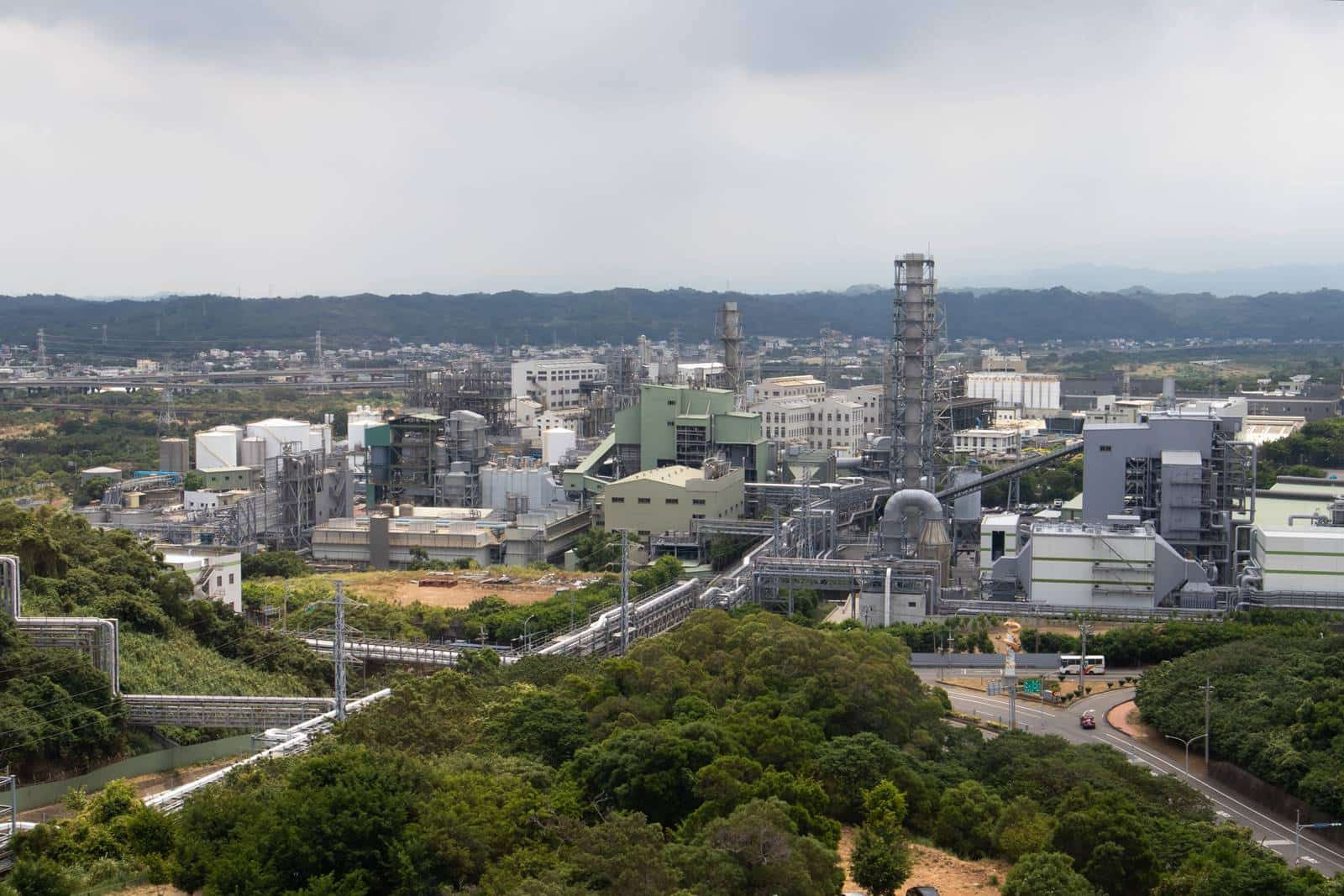The Nonagenarian Taiwan Billionaire Pioneering Biodegradable Plastics

Source:Ming-Tang Huang
Suhon Lin, Founder of the Chang Chun Group, is 92 years old. He has devoted his life to research. His latest invention: Taiwan’s first biodegradable plastics plant, which he spent NT$2.6 billion to develop and build. In doing so, he has busted the myth that petroleum-based plastics cannot be degradable. Using less plastic is a global trend, and Taiwan now has the capability to independently produce biodegradable plastics.
Views
The Nonagenarian Taiwan Billionaire Pioneering Biodegradable Plastics
By Kuo-chen Luweb only
The plant located in the Changhua Coastal Industrial Park produces PBAT and PBS biodegradable polyesters (polybutylene adipate terephthalate and polybutylene succinate). These are made with traditional petroleum-based petrochemical materials, but their attributes are like nothing you have seen before.
The biodegradable polyesters have similar attributes to conventional PE (polyethylene) plastics. They can be turned into straws, the inside linings of paper cups and containers, and the plastic film mulch commonly used in farm work. These single-use plastics are broadly used in daily life, light industry, and agriculture.
But unlike traditional plastics, these biodegradable polyesters can be placed in industrial compost, which will break them up into carbon dioxide and water after 180 days.

Biodegradable plastics produced by the Chang Chun Group
This is an effort to tackle the problem at its root.
Suhon Lin (林書鴻), Founder of the Chang Chun Group (長春集團), uses plastic mulch as an example. These plastic films used to cover farmlands are extremely vital for farmers because they are used to stifle weeds, prevent soil erosion, and preserve water inside the soil. But the film is often buried in the dirt after it has served its purpose. Over time, all the soil is mixed with plastic, and it becomes detrimental to the farm work. Ultimately, the plastics are washed by the rain into streams and seas, and end up polluting our oceans.
Even though nations around the world are taking a hard stance against plastics, such as banning the use of straws, it cannot be denied that plastics are convenient and economic.
Even the paper cups used to replace plastic cups are lined with a thin film of plastic. The face masks that are crucial for the prevention of COVID-19 are also made from plastic. The global pandemic has drastically increased mask demand, which has in turn greatly increased the amount of marine debris.
“These plastics do not degrade. Even if they drift across the ocean to the United States, even if they are devoured by fish or sea turtles, they will not disappear,” says Lin.
Since they are as hard to replace as they are to ban, perhaps a better solution is to change their chemical composition from the get-go.
A Traditional Petrochemical Plant Producing Biodegradable Plastics
Lin points out there is growing interest in biodegradable plastics around the world. This is an irreversible trend. Therefore, he invested NT$2.6 billion in independent research and development to build a plant that produces the biodegradable polyesters PBAT and PBS.
Chien-ming Huang (黃建銘), CEO and Founder of Minima (銘安科技), has studied biodegradable plastics for many years. He says Lin’s achievement means that Taiwan now has the capability to independently produce biodegradable plastics.
In the past, biodegradable plastics were mostly produced by the United States and Europe. The German chemical company BASF leads the world in the production of PBAT. At the same time, biodegradable plastics are mainly made from PLA (polylactic acid), which is in turn made from plant starch such as corn, beets, wheat, or sweet potatoes. These components are processed and made into biodegradable materials that naturally degrade in compost. But since PLA is made from edible plants, there is a concern that the production of such plastics is taking food from needy mouths.

In the past, biodegradable plastics were mainly made from PLA, which is made from edible plants such as corn. There is a concern that such plastics are taking food from the people who need them.
PBAT and PBS resolve the problem of biodegradable plastics using food as raw materials. They also give the conventional petrochemical industry a new direction in which to develop. Environmentally friendly and sustainable products are the future. But the question remains: Will the consumers accept them?
It was not easy to invest NT$2.6 billion to build a commercial chemical plant; the sum is many times that of an ordinary plastics plant. Because of this, Chang Chun’s PBAT and PBS cost two to three times more than conventional PE. Even though Chang Chun received orders as soon as it began mass production, and a client bought 160 tons of biodegradable polyesters; compared to the tens of thousands of tons that traditional plastics plants usually sell, even such an order pales in comparison.
Lin says that for biodegradable plastics to really take off, government policies and market support are needed to drive demand. Petroleum-based biodegradable plastics are the future, but such a dream will not become reality overnight.
Taiwan's First Biodegradable Plastics Plant Needs Buyers' Support
KW Huang (黃國維), head of the High-value Petrochemical Industry Promotion Office (石化產業高值化辦公室), says that the main market for biodegradable plastics is Europe, or companies like Starbucks and Apple, which support sustainable initiatives. Chang Chun may have built Taiwan’s first biodegradable plastics plant, but it needs the support of the consumer market and businesses. Otherwise, even if a company spent billions to develop and build a factory, it may all come to naught.

But Chang Chun’s accomplishment means something special for Taiwan’s petrochemical industry. The company has never gone public; it made its way onto CommonWealth Magazine’s list of Taiwan’s Fifty Largest Companies all on its own. Lin’s strength is research, and his constant pursuit of new, unique products.
Lin’s other accomplishment is the Chang Chun plant in Mailiao, Yunlin. It collects the carbon dioxide emitted by neighboring factories and turns them into raw materials for acetic acid, of which it produces 800,000 metric tons a year. In doing so, carbon emission is reduced by 160,000 metric tons annually. That’s the equivalent of what 408 Daan Forest Parks can reduce in a year.
Lin’s investments show that the petrochemical industry is also working hard to help solve the world’s problems.
But in the end, it comes down to the consumers. Not only must they be willing to use such plastics, they also need to do so correctly. Such plastics do not degrade wherever you discard them. They must be collected and put into compost; they cannot be recycled together with other plastics. The race to rescue marine animals and clean our oceans starts with us; we all need to pitch in.
Have you read?
♦ In Search of the Next TSMC
♦ Taiwan’s McDonald’s 2.0 Moving Fast-Food Upmarket
♦ Does Taiwan Have Enough Power for TSMC?
Translated by Jack Chou
Edited by TC Lin
Uploaded by Penny Chiang






